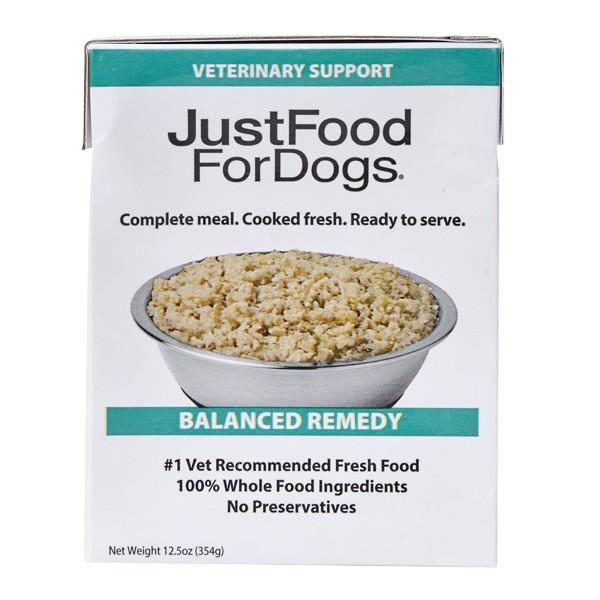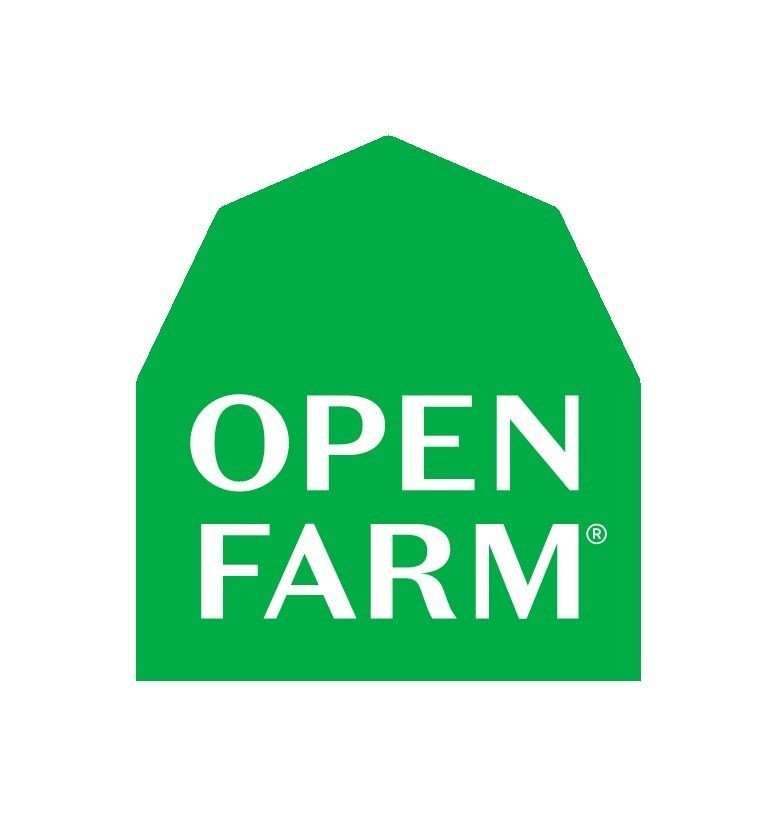The Dog Tale is reader-supported. We may earn a commission if you buy something through our site; this doesn’t change our recommendations.
When faced with a diagnosis of IBD, IBS, or chronic colitis, many pet owners turn to homemade dog food recipes because it’s an easy way to control what your dog eats. However, preparing homemade dog food for IBD and other ailments isn’t always easy. You need to make sure your dog’s diet is nutritionally balanced for a canine’s needs while still eliminating problem ingredients.
To help, we’ve researched veterinarian recommendations to find several different types of home-cooked food for canine colitis, including limited ingredient, vegan, and treat recipes. We hope these will provide a good base for feeding your dog.
If you want to supplement your homemade food with a store-bought option, check out our guide to the best dog food for colitis.
In this guide:
- Best homemade recipes for dogs with colitis, IBD, or IBS
- Do I need to supplement homemade dog food recipes?
- Want to leave it to the pros? Get fresh food delivered
- Treats for dogs with IBD
- Talk to your vet before making drastic changes
- Take your time when transitioning to an IBD diet
- Frequently Asked Questions about IBS dog food recipes
- Want to see more options for dogs with IBD?
JustFoodForDogs: Balanced Remedy Recipe
- Limited-ingredient diet made specifically for digestive issues like colitis
- Human-grade ingredients
- Get 35% off + free shipping when you subscribe
Best homemade recipes for dogs with colitis, IBD, or IBS
Note:
- We’ve included two meat-based recipes and two vegan options.
- The meat recipes were both created by vet nutritionists at BalanceIT.com specifically for dogs with allergies or IBD. Minor adjustments to portions may have been made. They should be used as a starting point and adjusted further with the help of your veterinarian.
- The vegan recipes are from Dr. Pitcairn’s Complete Guide to Natural Health for Dogs & Cats (4th Edition). These two recipes were created to meet the needs of dogs with allergies to meat and gastrointestinal (GI) issues, among other problems. These contain more ingredients and may need adjusting if your dog cannot tolerate certain ingredients. Work with your vet to identify your dog’s allergens.
- Generally, low and slow cooking temperatures help preserve nutrition. To improve digestibility, you may want to use a food processor or immersion blender to make a mash after the food is cooked.
- We recommend making large batches and freezing half for later use.
- It’s important to include a nutritional supplement in homemade, limited-ingredient diets to ensure your dog is getting all the essential vitamins and minerals they need. We like The Farmer’s Dog’s DIY supplement.
- It’s important to determine your dog’s daily caloric needs. This will depend on their breed, age, size, activity level, spay/neuter status, and more. You can easily find this number for free by going through The Farmer’s Dog’s onboarding quiz—even if you don’t plan on ordering any food.
>> Read more: Best Novel Protein Dog Food
Homemade turkey & sweet potato recipe
Sweet potato has tons of vitamins and minerals that aid digestion, reduce inflammation, promote healthy gut bacteria, and a host of other things.
What you’ll need
- 7 oz. roasted turkey breast
- 2 ¼ cup baked sweet potato, flesh only
- 3 tsp. corn oil*
- 3 tsp. Welactin for Dogs (an Omega 3 supplement)
- 4 tsp. Balance IT® Canine supplement
Baking directions
- Bake turkey and sweet potato in the oven until fully cooked and the sweet potato texture is soft.
- Chop turkey into tiny pieces.
- Mash sweet potato with a fork.
- Mix all ingredients until blended.
Nutrition Profile: Yields 921 calories: 29% protein, 30% fat, 41% carbohydrate
*If you are as curious about the use of corn oil as I was, it has to do with moderating the fat content of your dog’s food. Too much fat is a common cause of IBS and colitis. Below is what BalanceIT.com has to say about it. In this case, I’d suggest using organic corn oil to avoid GMOs.
“Corn oil is the richest source of linoleic acid that is readily available at least in North America, so it is widely used in our recipes along with canola oil to minimize the amount of extra fat that has to be added to recipes. In cases where corn oil will not work, walnut oil can be used as an alternative. Other substitutions should not be made unless instructed to do so by a veterinarian or a boarded veterinary nutritionist as doing so may not only change the amount of essential fatty acids.”
Homemade fish & rice recipe
This limited ingredient dog food recipe uses a white fish, which is less likely to cause an immune reaction than other proteins commonly used in commercial dog food, such as chicken or beef.
What you’ll need
- 8 oz. Tilapia, cooked, dry heat (approx. 97% lean)
- 1 ¾ cup cooked long-grain, white rice
- 7 ½ tsp canola oil
- 4 ½ tsp Balance IT® Canine supplement
Cooking directions
- Bake tilapia until cooked through; chop into tiny pieces.
- Cook rice according to package instructions.
- Mix all ingredients together.
Nutrition profile: Yields 913 calories; 28% protein, 39% fat, 33% carbohydrate
Homemade vegan skillet supper for dogs
Most dogs should eat a meat-based diet. However, some critical cases of IBD in dogs due to protein sensitivity may require a vegan diet.
This homemade recipe is for dog maintenance. It gets bonus points since it creates an easy way to use up leftover quinoa, brown rice, buckwheat, or millet.* It also makes a great lunch for the humans in your life as well—just throw it on top of chopped lettuce.
*For a grain-free version, substitute cooked sweet potato or winter squash for the grain. If you substitute a lower-protein legume for kidney beans (e.g. garbanzo beans), you should also reduce the starches (quinoa, corn, etc.) to keep the recipe balanced.
What you’ll need
- 1 carrot, grated
- ½ cup minced spinach or other greens (parsley, kale, etc)
- 1 tsp. organic tamari soy sauce or ⅛ tsp. salt
- 2 cups cooked quinoa, rice, or other whole grain
- 2 cups of well-cooked kidney beans or 1 can (15oz.)
- ¼ cup frozen corn kernels or peas
- 1 tbsp. nutritional yeast
- 2 tsp. hemp hearts, ground flaxseeds, coconut oil, lecithin, tahini, or peanut butter
- 1 ½ tsp. Vegedog supplement (or daily label amount)
Cooking directions
- Warm a large skillet over medium-high heat.
- Add a few tablespoons of water or broth and cook the grated carrot briefly, stirring, then add the spinach and sprinkle in the tamari.
- When the greens soften, add the cooked quinoa, kidney beans, corn, and nutritional yeast. Heat up to serving temperature.
- Mash the beans with a fork for your dog’s serving, then top with the hemp hearts and Vegedog. (For humans, top with salsa, if desired.)
Nutrition Profile: Yields 1,123 calories; 20% protein, 15% fat.
Homemade vegan lentil stew for dogs
This recipe is inspired by Anne Heritage in her book Bramble: The Dog Who Wanted to Live Forever and tailored by Dr. Pitcairn. It is for dog maintenance.
*Note: This recipe contains soy. If your dog has soy allergies, omit the tofu and use 4 tablespoons of nutritional yeast, 3 tablespoons ground flaxseed/oil, and 3 tablespoons tahini. Increase the flaxseeds and tahini to 3 tablespoons each, to meet the AAFCO minimum fat requirements.
What you’ll need
- 5 cups water
- 2 cups dried lentils
- 2 cups dry brown rice (or white rice, with vet approval)
- 1 cup or more fresh veggies (spinach, peas, greens, carrots, chard, etc.) *Vary the veggies and be creative. Absolutely no onion, garlic, chives, or other members of the allium family.
- 1 block (10 oz.) super firm Wildwood SprouTofu or 1 tub (14 oz.) Westsoy or Nasoya extra firm organic tofu (substitute if your dog has a soy allergy. See note above.)
- 3 tbsp. nutritional yeast
- 1 tbsp. ground flaxseeds or fresh flax oil
- 1 ½ tbsp. tahini (sesame butter)
- 1 tbsp. organic tamari soy sauce or ½ tsp. Salt
- 1 ½ tbsp. Vegedog supplement (or daily label amount)
Cooking directions
- In a large saucepan over medium-high heat, bring the water to a boil.
- Add the lentils, rice, and veggies to simmer, covered for about 45 minutes.
- Cool to serving temperature and add the tofu, nutritional yeast, flaxseeds, tahini, tamari, and Vegedog.
Nutrition Profile: Yields 3,443 calories; 22% protein, 13% fat.
Do I need to supplement homemade dog food?
You should supplement homemade dog food, according to veterinarians. In fact, it’s a common theme when discussing homemade dog food recipes. Many vets, like Dr. Pitcairn and those at BalanceIT.com, state that a dog will be missing essential nutrients if fed only a human food diet. Though the food is nutritious, dogs need other nutrients that humans do not—nutrients they would get in the wild from sources such as organ meat and bone.
This advice may seem counterintuitive to those who value obtaining nutrition from real food rather than supplements. However, many veterinarians state that deficiencies in essential nutrients will lead to preventable health conditions. For this reason, veterinarians strongly encourage a good supplement to make home-cooked meals complete and balanced.
Here are several recommended supplements that were designed to complete homemade food:
- Just Food For Dogs Venison & Squash Nutrient Kit: This nutrient kit is designed to mirror JFFD’s fresh venison & squash recipe, which you can also have delivered on a regular basis if you don’t feel like making it yourself. One perk about this recipe is that it’s designed around a novel protein, which is less likely to provoke your dog’s colitis or IBD symptoms.
- The Farmer’s Dog DIY Nutrient Mix: A subscription service that delivers the nutrient supplement along with tailored recipes you create at home. We also recommend checking to see if your dog can have any of the recipes available in their fresh food delivery service. You can learn more about it in our The Farmer’s Dog Food review.
- Vegedog by Compassion Circle: Designed by a veterinarian to include vitamins and minerals such as Vitamin B12. Single purchase or bulk purchase available.
- Meal Mix by Dr. Mercola: This product comes with instructions on how to customize the amount based on the kind of food your dog eats, including meat only, meat and vegetables, or meat, vegetables, and starch.
- Protect your pet in seconds
- Accident & Illness + Optional Wellness coverage available
- Policies start at just $9.99/mo
Want to leave it to the pros? Get fresh food delivered
If homemade food sounds like a great idea but you lack the time or energy to stick with it, a fresh pet food subscription service may be the right option for you. Services such as The Farmer’s Dog or Just Food For Dogs can routinely deliver freshly cooked human-grade dog food right to your doorstep without you lifting a finger (ok, maybe one finger to click).
Each of the recipes is crafted by veterinary nutritionists to contain whole, human-grade meat, vegetables, and carbohydrates. The ingredients are cooked at low temperatures to preserve nutrients, then frozen so they can be shipped to your door on a regular schedule. And each meal includes all of the vitamins and minerals your dog needs, so you no longer need to add a supplement.
You can learn more about their recipe options, rigorous testing, ingredient sourcing, and a lot more in our The Farmer’s Dog vs Just Food For Dogs comparison. Or you can learn about other food options in our roundup of the best dog food for IBD and IBS.
JustFoodForDogs: Balanced Remedy Recipe
- Limited-ingredient diet made specifically for digestive issues like colitis
- Human-grade ingredients
- Get 35% off + free shipping when you subscribe
Treats for dogs with IBD
Below are two homemade treat recipes for dogs with IBD. Most vets recommend eliminating all treats when there’s an IBD or IBS diagnosis, but that’s because treats are typically unhealthy and include tons of agitating ingredients. Ask your vet if healthy, limited-ingredient treats, such as these, are okay.
Note: The skins of both sweet potatoes and apples consist mostly of insoluble fiber. Normally I cringe when I see peeled vegetables because so much of the nutrition is lost in the trash. But since insoluble fiber can be rough on the digestive systems of dogs with IBD, it may be wise to remove the skins before baking.
Apple Chips
Dogs love apples and they are a nutritious treat, especially for dogs with gastrointestinal issues. The meat of an apple consists of about 80% soluble fiber. This type of fiber is gentler and smoother as it passes through the digestive system. It also helps bulk up stools and reduces chronic diarrhea.
Apples can be offered either fresh or dehydrated. For fresh, simply peel and serve in small pieces.
What you’ll need
- 2 organic apples
- Baking sheet
- Parchment paper (optional)
Baking directions
- Preheat your oven to 200º F.
- Core apples with an apple corer
- Slice apples into ¼-inch slices or less with a knife, food processor, or mandolin.
- Arrange slices on a baking sheet and bake for approximately 2 hours until dried and crisp. Decrease baking time for a slightly chewier texture.
- Allow to cool before serving. Store in a sealed container for up to one week or longer in the freezer.
Sweet Potato Bites
Sweet potatoes are a highly nutritious food, and the meat contains both insoluble and soluble fiber.
What you’ll need
- 2 medium-sized sweet potatoes
- Baking sheet
- Parchment paper (optional)
Baking directions
- Preheat your oven to 200º F.
- Line two baking sheets with parchment paper.
- Slice sweet potatoes horizontally into ¼-inch round slices. (This thickness will provide the right amount of chewiness)
- Place slices in a single layer onto the baking sheets.
- Bake for approximately 3 to 3 ½ hours, flipping the slices halfway through, until slices are dried out. Some pieces will be chewier than others.
- Cool before serving. Store in a sealed container in the refrigerator for up to three weeks or freezer for longer.
Depending on the size of your dog, you may want to make smaller or larger pieces. Consider dicing small ¼-inch cubes for training treats or slicing lengthwise for longer slices for large dogs. Baking times should be approximately similar.
Pre-made treats for colitis & IBD
- Made with superfoods hand-selected to promote gut health
- We also recommend their Spirulina Dailies treat for a vegan option
- Subscribe and save 20%
- Single-ingredient treat
- Made with a novel protein source
- Get 15% off with code DOGTALE15
- Limited ingredient treats
- Pumpkin treats can aid digestion
- Venison and Salmon treats made with novel proteins
- With sweet potato as the single ingredient, this freeze-dried snack is nutritious and a great option for dogs with GI issues.
- These treats are less than 1 kcal per treat—perfect for long, dedicated training sessions.
- Over 450 treats per bag!
- 100% pure, freeze-dried, raw lamb hearts. These treats are nutritious and a great option for dogs that need a novel protein due to GI issues.
- Made in the USA.
- Gluten-free, grain-free, and poultry-free. Perfect for pets with food sensitivities and limited-ingredient diets.
- 100% freeze-dried, wild-caught Alaskan salmon.
- Rich in Omega 3.
- Sustainably sourced and made in the USA at an FDA-regulated facility to ensure human-grade quality.
Talk to your vet before making drastic changes
If you suspect your dog has inflammatory bowel disease or irritable bowel syndrome, but they haven’t been diagnosed yet, you need to visit your vet right away. Untreated IBD or IBS can have detrimental effects on your dog’s health.
IBD can be a critical issue, so you’ll want to make sure you’re getting the correct diagnosis and taking appropriate steps to treat the issue. Each case can be different, and vets will often customize treatment to your dog’s unique health needs.
- Protect your pet in seconds
- Accident & Illness + Optional Wellness coverage available
- Policies start at just $9.99/mo
Take your time when transitioning to a homemade diet for dogs with IBD
If you know a certain food is triggering an inflammatory immune response, immediately remove it from your dog’s diet. After you and your vet have decided on a new canine IBD diet, you’ll want to minimize the chance of causing more stomach issues by transitioning to the new food slowly.
A typical transition schedule looks like:
- Days 1–3: 25% new diet and 75% old diet (without trigger ingredient)
- Day 4–6: 50% new diet and 50% old diet
- Day 7–9: 75% new diet and 25% old diet
- Day 10: 100% new diet
Most healthy dogs can transition to a new diet within approximately 7 days. But other dogs, such as those suffering from sensitive stomachs, GI issues, or a food allergy, can take 10+ days to transition successfully. We suggest using 10 days at a minimum to fully transition.
Monitor your dog’s response to the new diet and slow the transition further if you notice unfavorable symptoms like an increase in vomiting, diarrhea, or changes in appetite. If problems persist, contact your veterinarian as it may be necessary to choose a different diet.
FAQs about homemade dog food for colitis, IBD & IBS
Can I add supplements to the food?
Yes, you can add supplements to your dog’s food, but when your dog has IBD or IBS, always check with your vet first.
We’ve recommended several holistic supplements earlier in this guide. However, certain supplements, particularly probiotics, are beneficial for restoring proper gut health. Research indicates an abnormal gut microbiome composition may be a large cause of IBD and restoring proper gut health can lead to clinical remission and reduced inflammation.1
Nom Nom has created a probiotic with seven full spectrum strains. With Nom Nom, your dog gets the benefit of both a nutritionally-dense dog food along with a multi-strain probiotic. According to the research cited in the previous paragraph, these two things are a powerhouse for fighting IBD.
Nom Nom’s food could also be an excellent option for your dog. Just review the ingredients in the recipe they recommend for your dog to ensure your dog can have them You can learn more in our Nom Nom Dog Food review.
Are eggs good for dogs with colitis?
It depends. Eggs can be a beneficial source of protein, fatty acids, vitamins, and minerals. However, dogs with IBD, chronic colitis, or other issues related to the intestinal tract frequently have abnormal immune responses to certain foods, often proteins. Eggs are commonly one of the proteins that trigger a response, so work with your vet to identify your dog’s specific allergens.
Can dogs with IBD eat sweet potatoes?
Generally, yes, sweet potatoes are good for dogs with IBD.
To name a few of the many benefits, sweet potatoes are loaded with vitamins and minerals that help digestion, reduce inflammation, and support a healthy gut microbiome; they also help maintain healthy eyes, muscles, and skin. But you should ask your veterinarian before giving your dog sweet potatoes. Let us explain:
Sweet potatoes have a mixture of both soluble and insoluble fiber, about 15–23% and 77–85%, respectively. According to Dr. Freeman, these two kinds of fiber produce different effects on the body, especially in the digestive tract. So, depending on what other fibrous foods you are feeding your dog, the amount or correct type of fiber might be imbalanced and cause problems for your dog.
Dr. Freeman suggests working with your vet to determine the specific type and correct amount of dietary fiber to feed your pet.
>> Read more: My Dog Has Loose Stools and Smelly Gas
Want to see more options for dogs with IBD or colitis?
While these homemade dog recipes are helpful, it can be hard to always have prepared food on hand. In this case, consider mixing your homemade recipes in a 50/50 ratio with one of the following pre-made dog foods. We’ve included these options and more in our review of the best dog food for colitis. We’ve carefully selected higher-quality options that use reputable ingredients and no harsh fillers or artificial preservatives. However, you should verify that your recipe of choice works for your dog’s unique needs.
- Chippin Dog Food & Treats: Chippin offers planet-friendly dog food and treats made with novel proteins like silver carp, spirulina, and cricket protein. These novel food sources may be a good option for dogs allergic to more common meats, such as beef or poultry.
- We Feed Raw Dog Food: If you want to feed your dog a raw diet, We Feed Raw offers protein-rich options with limited problematic ingredients. They also offer a variety of protein options. However, you should consult your vet to determine if feeding your pet a raw diet could help your dog’s digestive issues. We do like We Feed Raw’s products, but transitioning your dog from kibble to raw fresh food may cause short-term digestive upset.
- Sundays Food For Dogs: Sundays offers air-dried dog food made with whole food ingredients and little else. Their current recipes only come in beef or chicken, so they aren’t a good source of novel proteins. but they do offer high-quality food that’s less processed than commercial food and free from many of the additives that can cause stomach upset and chronic colitis.
- Spot & Tango UnKibble: UnKibble offers a “Fresh Dry” alternative to overly processed dry kibble. No additives, meat powders, or artificial ingredients.
- Halo Holistic Wild Salmon & Whitefish Recipe: Salmon and whitefish with non-GMO vegetables in a highly digestible kibble. Absolutely no rendered meat meals, artificial ingredients, or preservatives.
- Blue Buffalo Basics Limited Ingredient Diet: A limited-ingredient recipe for senior dogs that consists mainly of turkey or lamb, potatoes, and pumpkin. Multiple recipes are available.
>> Read more: Best Wet Dog Food for Senior Dogs
Let's bark a little
Get our latest updates and articles right in your email.
We won't bark too much. Promise.
References
- Comparison of microbiological, histological, and immunomodulatory parameters in response to treatment with either combination therapy with prednisone and metronidazole or probiotic VSL#3 strains in dogs with idiopathic inflammatory bowel disease. https://pubmed.ncbi.nlm.nih.gov/24722235/
Is Farmer’s Dog Grain Free?
What Vegetables Can Dogs Eat? Safe & Healthy Ingredient List
PetPlate Review: Fresh Dog Food Delivered to Your Door
How to Make Homemade Dog Toothpaste: DIY Recipes









